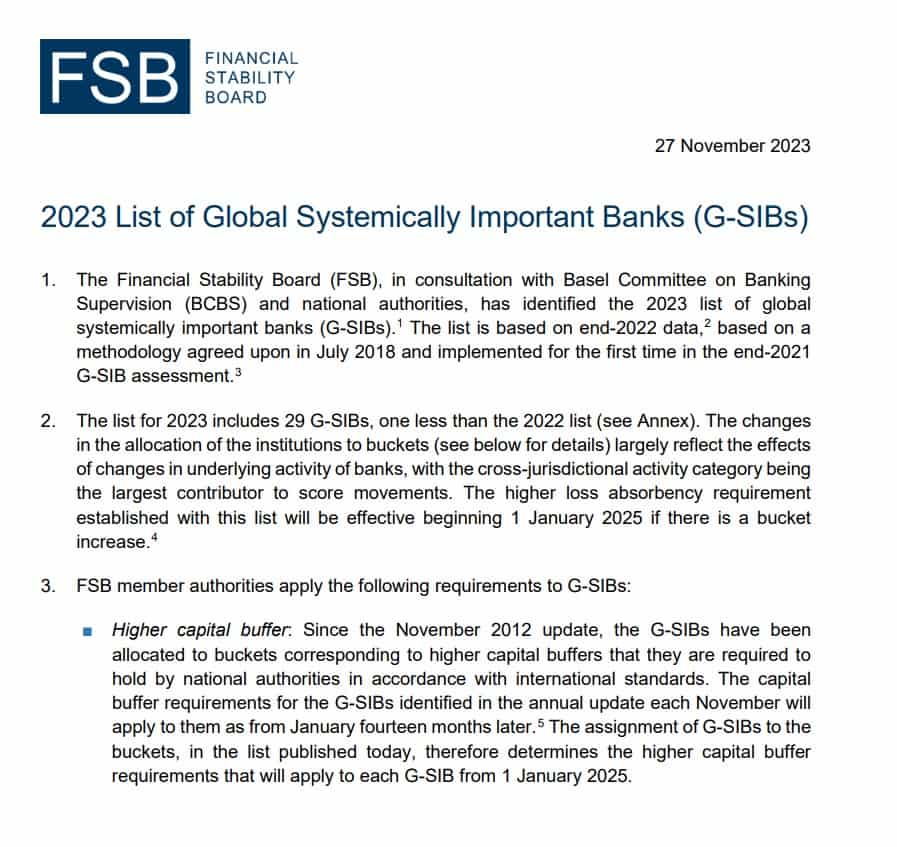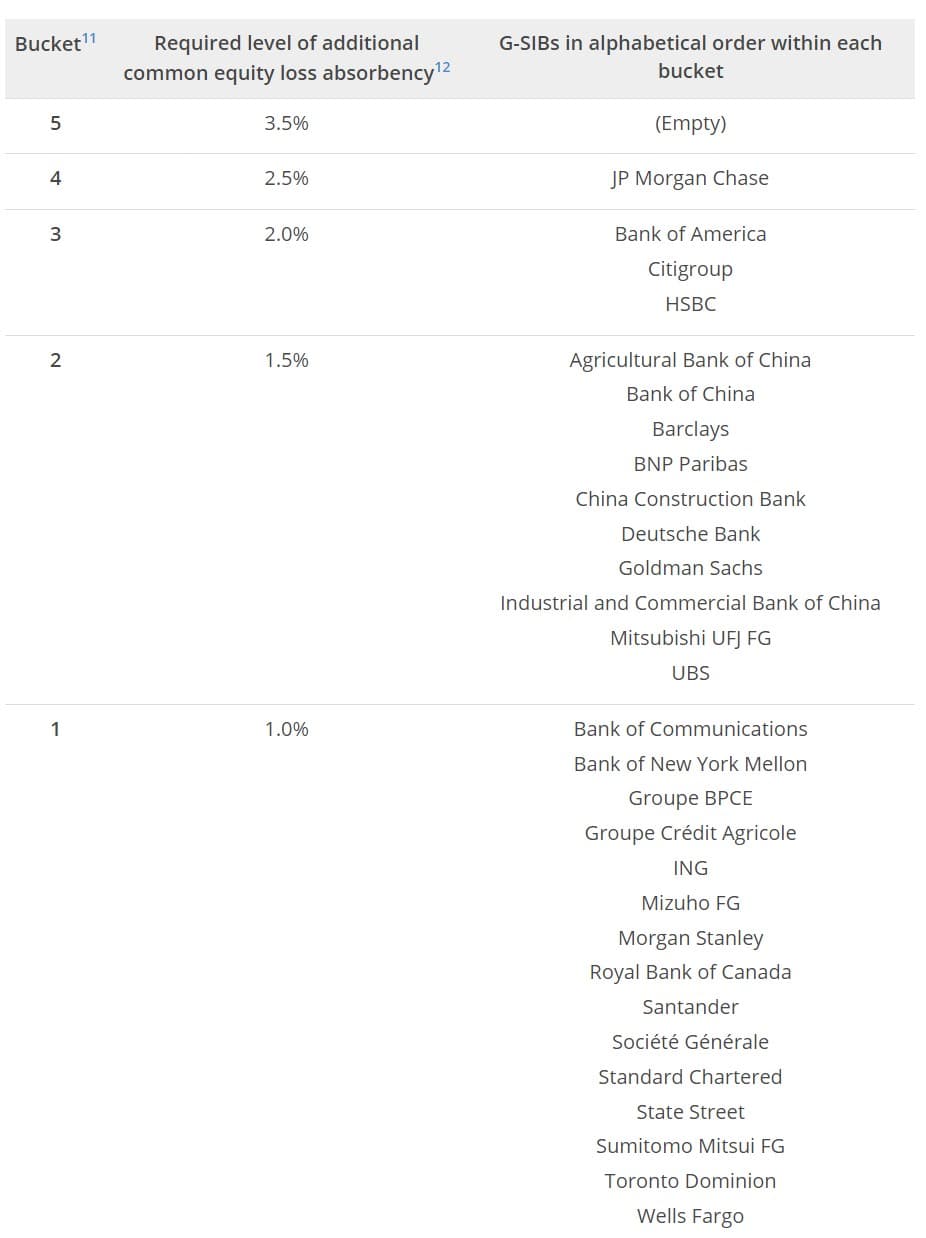Too Big to Fail Alert! Financial Stability Board: "One bank (Bank of Communications (BoCom)) has been added to the list of G-SIBs that were identified in 2022, and two banks (Credit Suisse and UniCredit) have been removed."


Highlights:
One bank (Bank of Communications (BoCom)) has been added to the list of G-SIBs that were identified in 2022, and two banks (Credit Suisse and UniCredit) have been removed. The overall number of G-SIBs therefore decreases from 30 to 29.
FSB member authorities apply the following requirements to G-SIBs:
- Higher capital buffer: The G-SIBs are allocated to buckets corresponding to higher capital buffers that they are required to hold by national authorities in accordance with international standards. Compared with the list published in 2022, three banks have moved to a higher bucket: Agricultural Bank of China, China Construction Bank and UBS have moved from bucket 1 to bucket 2.
- Total Loss-Absorbing Capacity (TLAC): G-SIBs are required to meet the TLAC standard, alongside the regulatory capital requirements set out in the Basel III framework.
- Resolvability: These requirements include group-wide resolution planning and regular resolvability assessments. The resolvability of each G-SIB is reviewed in the FSB Resolvability Assessment Process (RAP) by senior regulators within the firms’ Crisis Management Groups.
- Higher supervisory expectations: These include supervisory expectations for risk management functions, risk data aggregation capabilities, risk governance and internal controls.


TLDRS:
- One bank (Bank of Communications (BoCom)) has been added to the list of Global Systemically Important Banks (G-SIBs) that were identified in 2022, and two banks (Credit Suisse and UniCredit) have been removed.
- The overall number of G-SIBs therefore decreases from 30 to 29.



